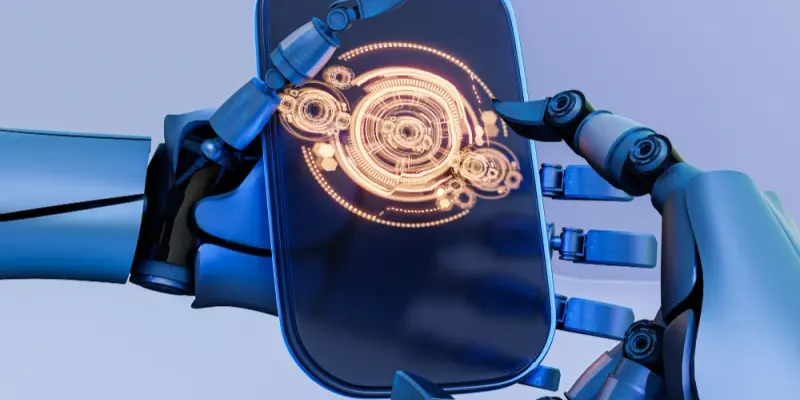Nvidia has embarked on an ambitious journey with the launch of its NeMo microservices, a suite designed to transform the development of AI agents within enterprises. In a world where the integration of AI into existing business systems is becoming increasingly imperative, these microservices offer a sophisticated solution. They allow organizations to harness AI’s full potential by enabling seamless integration while supporting continuous improvement through constant interaction with enterprise data. Unlike conventional chatbots, AI agents built using NeMo can gain access to critical enterprise data, empowering them to perform complex tasks autonomously.
NeMo Toolkit: Streamlining AI Development
Tools for Customization and Evaluation
At the heart of NeMo’s robust toolkit are five distinct microservices that facilitate various aspects of AI integration and optimization. The NeMo Customizer is pivotal in fine-tuning large language models, allowing enterprises to tailor AI agents to their specific needs. This customization capability enables AI agents to interact more effectively with an organization’s unique datasets, ensuring relevance and accuracy in their operations. Meanwhile, the NeMo Evaluator simplifies assessing AI models against custom benchmarks, providing enterprises with a powerful tool to ensure their AI agents perform optimally in real-world scenarios. Together, these tools offer a comprehensive framework that streamlines the development and deployment of AI agents, enhancing their ability to execute tasks accurately.
Safety, Compliance, and Data Management
Safety and compliance are integral to AI operations, and the introduction of NeMo Guardrails ensures that organizations can implement necessary controls. This microservice equips enterprises with the tools to enforce regulatory standards, safeguarding AI agents from making unauthorized or risky decisions. Data management is equally crucial, and the NeMo Retriever and NeMo Curator offer solutions for accessing and organizing enterprise data, ensuring AI models remain well-informed and up-to-date. The Retriever provides seamless access to diverse data sources across enterprise systems, while the Curator proficiently organizes and curates data for effective model training. Together, these components create a dynamic data flow, ensuring AI agents continuously adapt to evolving business requirements, thereby enriching their decision-making process.
Modular AI Systems: Flexibility and Integration
Tailored AI Solutions for Business Needs
There is a growing trend towards modular AI systems that allows for significant customization based on specific business requirements. NeMo embraces this trend by offering a modular architecture that enables enterprises to build AI systems tailored precisely to their organizational goals. This approach circumvents the challenges of rebuilding foundational components, offering an efficient and flexible solution for businesses seeking to leverage AI’s capabilities. Nvidia’s emphasis on integrating NeMo with its existing hardware ecosystem and the AI Enterprise software platform sets it apart in a competitive field. Giants like Amazon, Google, and Microsoft also offer similar AI solutions, yet NeMo’s unique combination of modularity and integration provides a compelling alternative, catering to enterprises that demand adaptability and scalable growth.
Technical Architecture and Real-World Applications
Central to NeMo’s effectiveness is its sophisticated technical architecture, which supports continuous enhancement and performance optimization. This architecture distinguishes NeMo from Nvidia’s Inference Microservices (NIMs) by focusing on data preparation and model optimization, allowing NIMs to concentrate on inference deployments. This complementary synergy leads to tangible business results, evident in early implementations by industry leaders such as Amdocs, alongside collaboration with major players like AT&T and Cisco. The microservices’ deployment in Docker containers, orchestrated via Kubernetes, showcases their flexibility across diverse computing environments and supports multiple AI models, whether proprietary to Nvidia or from other leading providers. This containerized approach is vital in addressing stringent regulatory and data sovereignty requirements, making it a strategic choice for businesses intent on securing their AI investments.
Enterprise-Centric AI: Innovation Meets Compliance
Bridging Innovation with Practicality
Nvidia’s NeMo microservices reflect a significant shift towards practical AI solutions centered on enterprise needs, effectively balancing innovation with regulatory compliance and data governance practices. As organizations increasingly recognize the strategic advantages offered by AI, the emphasis on tools that are not only technologically advanced but also practical becomes paramount. NeMo’s design bridges the often-present gap between cutting-edge research and real-world application, encouraging wider adoption of AI technologies. This release represents compelling progress in the maturation of enterprise AI tools, positioning businesses to leverage innovative AI agents capable of evolving alongside the dynamic nature of modern market demands.
Future Prospects in AI Integration
Nvidia has taken a bold step with its NeMo microservices, designed to revolutionize the way AI agents are developed within enterprises. In today’s business landscape, integrating AI into pre-existing systems isn’t just advantageous—it’s becoming essential. NeMo microservices provide a robust solution, allowing businesses to unlock AI’s potential through seamless integration and continuous adaptation. This suite empowers organizations to improve their operations by facilitating constant interaction with company data, promoting ongoing enhancement of AI capabilities. Unlike standard chatbots, AI agents created using NeMo can access vital enterprise data. This access enables them to perform intricate tasks independently, making them highly valuable for various business applications. By leveraging NeMo, enterprises gain an edge, ensuring their AI systems are not only responsive but also capable of evolving with the business’s needs, leading to smarter decision-making and increased efficiency.

